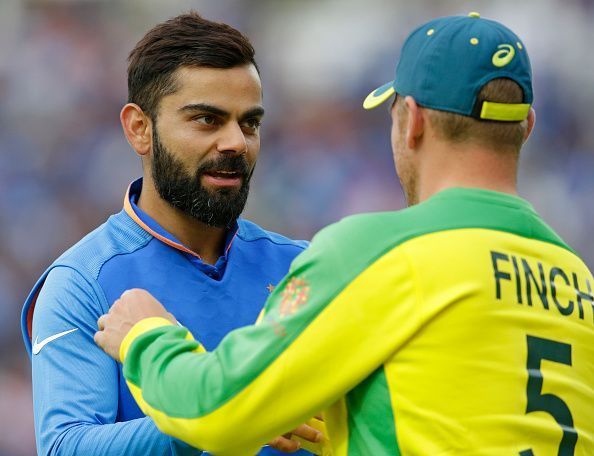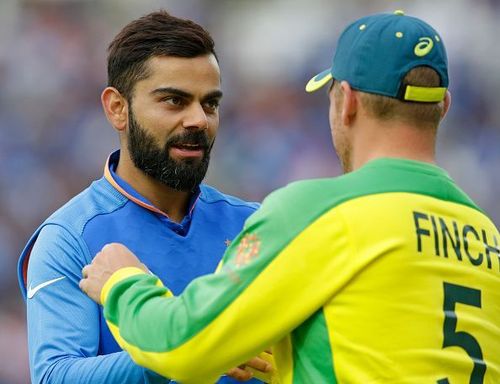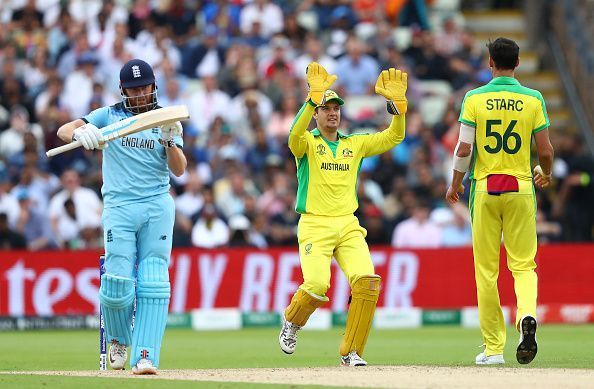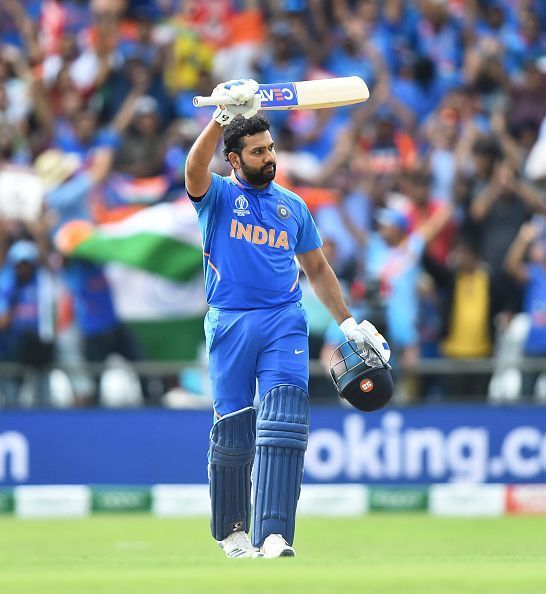
World Cup 2019 Review: India and Australia

Australia, the defending World Cup champions, were knocked out in the semi-finals courtesy of England. The hosts ruthlessly dominated them in a manner that would have been associated more with Australia themselves, aggressive bowling, early wickets, and hitting their best bowlers out of the attack.
India, the table toppers in the group stage, were knocked out in a thriller against New Zealand, who adapted to the overcast and slow conditions at Old Trafford better. They attacked India's batting weaknesses towards swing bowling and also exploited the shaky middle order and the lack of patience shown by the inexperienced batsmen.
With an England and New Zealand final destined to provide a first-time World Cup champion since 1996, this article takes a look at how the defending champions and the team considered most likey to win the tournament played, and what areas they need to address.
Individual performances could only Australia so far

A total performance was something Australia missed throughout the competition, resulting in a campaign that was constantly propelled by the individual efforts of a few players.
Mitchell Starc set a new record for most wickets in a single edition of the tournament with 27 wickets. David Warner finished second on the runs table with 647 runs, including three centuries and three half-centuries on his comeback to the international team following a one-year suspension after the Newlands scandal.
Former captain Steve Smith managed four half-centuries in this tournament, with the last of them coming in tricky conditions against England. His fielding remained exceptional throughout, but his bowling was massacred in the semi-final, conceding three consecutive sixes with the last of them bouncing of the roof of the stadium.
Aaron Finch had an excellent start to the tournament but his form declined towards the end, but he led well with 507 runs.
Wicketkeeper Alex Carey impressed with his composure, often batting in tricky situations and playing sensibly to score 375 runs. His resilience was also to be admired, especially in light of a vicious bouncer from Jofra Archer that left him needing stitches on his chin.
The only other bowlers, apart from Starc, to impress were Pat Cummins (14 wickets) and Marcus Stoinis (7 wickets).
Jason Behrendorff impressed with five wickets against England in the group stage, but took four wickets in his other four games.
Stoinis' bowling helped keep the runs in check, and a recurring side strain forced Australia to change their team balance and rely more on Glenn Maxwell, Smith, and Finch for overs.
Maxwell had a poor tournament with only 177 runs and spinners Adam Zampa and Nathan Lyon collectively managed only 8 wickets. Nathan Coulter-Nile had one lucky innings with the bat against West Indies and Kane Richardson secured 5 wickets in his limited chances.
Injuries to Shaun Marsh and Usman Khawaja didn't help the team balance, which was already skewed due to the presence of too many top order batsmen.
This is an area for them to resolve in the future, along with identifying a wicket-taking spinner and getting more consistency from their allrounders.
Some context must be applied to Australia's performance at this tournament. Despite being the defending champions, they have had a few bad years in ODI cricket and saw their captain and vice-captain sacked and suspended following the ball tampering scandal at Newlands. They were forced to reconsider the way they played the game and to learn humility.
To reach the semi-finals and finish with a winning percentage of 70 is something to be commended, and there are enough positive elements in the team to build around for the future.
The tournament of Rohit Sharma

India had the tournament's standout batsman in Rohit Sharma, one of the best bowlers in Jasprit Bumrah, and constantly adapted to conditions better than their opposition. But all of that was rendered null and void when India were reduced to 5/3 in their semi-final against New Zealand.
To win from that position would have been a miracle, and despite the performances of Ravindra Jadeja and MS Dhoni, the damage done upfront was too much to make up for. A spectacular direct hit from Martin Guptill to dismiss Dhoni destroyed any hope India had of making the final.
Prior to that loss, India had an excellent group stage, topping the table and losing only one match out of nine, against England. But the problems they came to the tournament with - a shaky middle order and susceptibility to swing bowling - came back to bite them when it mattered most.
Captain Virat Kohli had a consistent tournament, with five half-centuries and racking up 443 runs. KL Rahul, promoted to open alongside Rohit following an injury to Shikhar Dhawan, impressed with 361 runs, but scored them at a strike rate of less than 80.
MS Dhoni and Hardik Pandya were the only batsmen in the middle order with more than 200 runs, and were the only ones to play in every match due to their importance as wicketkeeper and main all-rounder.
Bumrah led the bowling with 18 wickets, constantly reading conditions well and forcing mistakes from the batsmen.
Mohammed Shami and Bhuvneshwar Kumar provided useful support, but it was often a one-man show from Bumrah in taking wickets and minimizing run scoring. With Shami taking wickets but unable to put a check on run-scoring during the death overs and Bhuvneshwar spending part of the tournament injured, the onus was clearly on Bumrah to deliver.
The two wristpinners - Yuzvendra Chahal and Kuldeep Yadav - had a mixed tournament. Kuldeep took 6 wickets at an average of 56.12 and Chahal took 12 at an average of 36.83. India were found wanting for tactical adaptability when their two wicket-taking threats in the middle overs were treated with disdain by England's batsmen, repeatedly targeting the smaller boundary at Edgbaston against them.
Rishabh Pant impressed with his talent but his inexperience showed in the semi-final and in the manner of his dismissal, but the Delhi wicketkeeper is someone to persist with in the future.
India have to identify a proper middle-order soon and cannot keep relying on Rohit, Virat, and Shikhar to score runs. KL Rahul impressed while batting at No.4 and him batting there is a long term solution.
A batting lineup with more bowling options is something to develop for the future as well, and adapting to the impending departure of MS Dhoni from international cricket is a pressing concern.
With the next edition of the tournament to be held in India, it is imperative to develop a team with the goal of lifting the trophy in home conditions.
Also read – World cup winners list
Follow Sportskeeda for all the updates on World Cup schedule, news, points table, live scores, most runs, World Cup most wickets and fantasy tips.